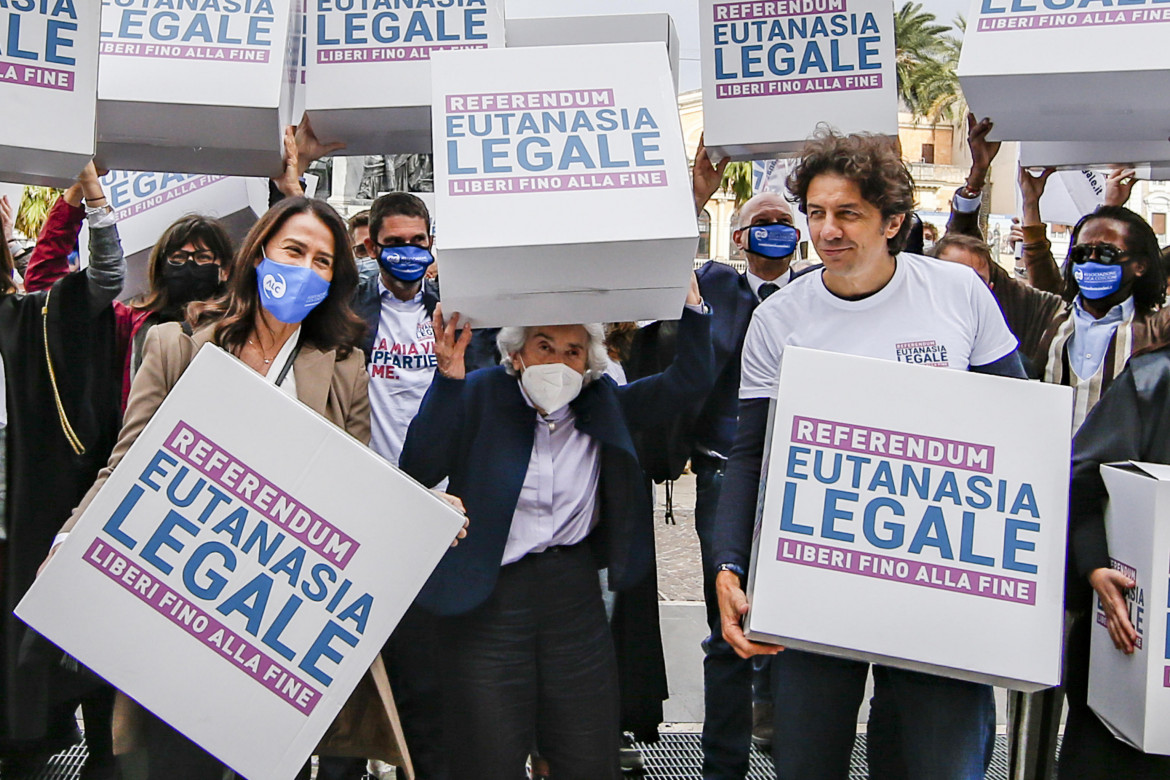Analysis
The question of assisted suicide returns to the Italian Constitutional Court
In October the prosecutor and the defense had asked for all charges against them to be dismissed. But on November 23, the preliminary judge rejected their request because Massimiliano was not on life support.

The Italian Constitutional Court first examined the issue of assisted suicide in 2019, when it ruled on the constitutionality of the right of terminally ill Italians to obtain medical assistance for suicide from the National Health System under certain conditions. The second time, in February 2022, it declared the proposed referendum questions on “legal euthanasia” inadmissible.
Now, the Constitutional Court will rule for the third time on end-of-life rights, on the particular issue raised by the Court of Florence concerning one of the four requirements previously set out by the Constitutional Court for the non-punishability of offering assistance to suicide: the dependence of the terminally ill person on “life-support treatment.”
The case for which the Florence preliminary investigative judge Agnese De Girolamo has raised a question of constitutionality concerns the assisted suicide of Massimiliano, known as Mib, a 44-year-old from San Vincenzo (Livorno) who died on December 8, 2022 at a clinic near Zurich, three days after circulating an appeal, through the Coscioni Association, in which he explained that he had been suffering for six years “from multiple sclerosis that has already paralyzed me” and that he wanted “to be helped to die without suffering in Italy, but I can’t because I don’t depend on life support treatments.”
Accompanying him to Switzerland on his last trip were Coscioni Association activist Felicetta Maltese and journalist Chiara Lalli. The next day, they turned themselves in to the Florence Carabinieri along with treasurer Marco Cappato as the legal representative of the Associazione Soccorso Civile, which had organized and financed Massimiliano’s trip.
In October the prosecutor and the defense had asked for all charges against them to be dismissed. But on November 23, the preliminary judge rejected their request because Massimiliano lacked the aforementioned fourth requirement demanded by the Constitutional Court (the others are irreversible illness, intolerable physical or psychological suffering, and the patient’s full capacity to make free and conscious decisions) in its ruling No. 242/2019 in the Cappato/Dj Fabo case.
Judge De Girolamo wrote in an order dated January 17 that “the question of constitutional legitimacy of Article 580 of the Criminal Code, as amended by the Constitutional Court’s ruling No. 242 of 2019, is relevant and not manifestly unfounded, regarding the part that requires that the non-punishability of those who facilitate the suicide of others be conditional” on the person soliciting assisted suicide being “kept alive by life support treatments.” According to the Florence magistrate, this condition could be in conflict “with Articles 2, 3, 13, 32 and 117 of the Constitution, the latter in reference to Articles 8 and 14 of the European Convention on Human Rights.”
If convicted, the accused would face 5 to 12 years in prison. But lawyer Filomena Gallo, secretary of the Coscioni Association and head of the defendants’ defense team, says she is “confident” in the work of the judges of the Constitutional Court: “Life support treatment, if interpreted in a restrictive sense, is a discriminatory requirement since it does not affect the ability to make decisions, the irreversibility of the illness or intolerable suffering,” she explained, adding that such a condition is “not required in any end-of-life regulation in other countries.”
The Coscioni Association stresses that because of this imposed requirement, “so many Italians, such as Massimiliano (Tuscany), Elena (Veneto), Romano and Margherita Botto (Lombardy), Paola (Emilia Romagna), and Sibilla Barbieri (Lazio), were forced to go to Switzerland to have access to assisted suicide.”
The Constitutional Court had also urged the legislature to regulate end-of-life provisions, but Parliament has been slow to take the initiative. For this reason, the Coscioni Association is collecting signatures to put forward the popular initiative bill “Liberi subito” (“Free right away”) in every region, which guarantees clear, adequate and well-defined timeframes for checking the requirements of the person soliciting assisted suicide, as well as the intervention of the National Health Service. The bill was rejected in Veneto a week ago, but the proposal or other similar texts have already been filed in other regions.
Next up is Lombardy. The region is examining the more than 8,000 signatures that have been filed and will have to rule on the admissibility of the bill by February 2. The timeframe could lengthen if the bill’s proponents are called to a hearing by the regional Government Board. If the latter doesn’t reach a unanimous decision, the matter will go to the floor of the Regional Council. The road ahead is long, but the only ones who are losing out are those afflicted by incurable illnesses who are suffering and waiting.
Originally published at https://ilmanifesto.it/discriminatorio-il-suicidio-assistito-torna-in-consulta on 2024-01-23
